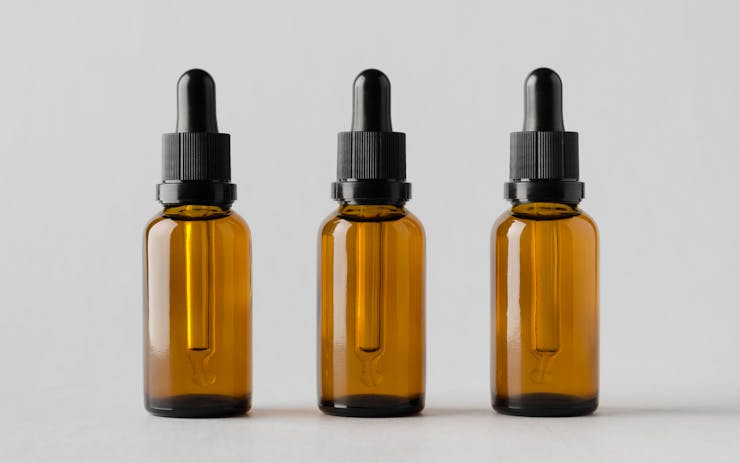Health products containing cannabidiol (CBD) continue to gain in popularity around the country, but the emerging market still has work to do to gain the full trust of patients. Case in point: A study published this week in JAMA, the Journal of the American Medical Association, found that many CBD products sold online last year missed the mark when it came to accurate labeling.
Of the 84 products tested, 31% were accurately labeled. 43% contained more CBD than labeled, 26% contained less.
University of Pennsylvania researcher Marcel Bonn-Miller, working with associates at Americans for Safe Access and Johns Hopkins University, tested 84 CBD products purchased online in September and October, 2016. They found that 31% of the products were accurately labeled; 43% were underlabeled (meaning they contained more CBD than claimed); and 26% were overlabeled (meaning they contained less CBD than claimed).
The researchers deemed any product with CBD content that varied more than 10% from its labeled value to be inaccurate.
Label accuracy was greatest among CBD oils, with 45% of oil products testing out within the allowed 10% margin of variance. Accuracy was lowest with CBD vape liquids; only 12.5% of those products tested within the allowed range.
The findings suggest “a continuing need for federal and state regulatory agencies to take steps to ensure label accuracy of these consumer products,” the authors wrote. “Underlabeling is less concerning as CBD appears to neither have abuse liability nor serious adverse consequences at high doses,” they added. Some tested products contained small levels of THC, although THC did not appear on the label.
A Wakeup Call
The study comes as another wakeup call to both the emerging CBD industry, and to state and federal regulators who refuse to take action to regulate CBD products for quality assurance.
Caveat: These were 2016 products, not 2017 products, and it's a fast-changing market.
The research comes with caveats to consider, though. The products in the study were purchased in the autumn of 2016, and this is a market that’s moving so fast that many of those products may no longer exist in the autumn of 2017, or may have been completely reformulated. Also, the tested products came from national mail-order companies that sold to all 50 states—and which generally aren’t subject to state-mandated testing laws in legal cannabis states like Colorado, Washington, Oregon, and Nevada.
CBD products continue to exist in a confusing gray area for most consumers. Late last year, the federal Drug Enforcement Administration (DEA) published a rule declaring them an illegal Schedule I substance. And some state law enforcement agencies—most notably Alaska’s Alcohol and Marijuana Control Office, and the Indiana state Alcohol and Tobacco Commission—have mounted bizarre raids on health stores in the past year, citing the illegality of CBD.
Even the DEA Doesn’t Know
But even the DEA isn’t sure what to do about CBD.
In an interview with Indiana station WTHR last week, DEA spokesperson Rusty Payne did not reverse the agency’s earlier assertion about the federal illegality of cannabidiol. But he admitted that if he were a parent with a child helped by CBD,
“I’d do the same exact thing — without hesitation. I cannot blame these people for what they’re doing. They are not a priority for us … it would not be an appropriate use of federal resources to go after a mother because her child has epileptic seizures and has found something that can help and has helped. Are they breaking the law? Yes, they are. Are we going to break her door down? Absolutely not. And I don’t think she’ll be charged by any U.S. Attorney.”
Payne also said: “We are in the middle of an opioid crisis in this country. That’s our biggest priority right now. People are not dying from CBD. Some would argue lives are being saved by CBD. Are we going to get in the middle of that? Probably not.“
Need for Standards and Oversight
This week’s JAMA study follows similar studies in previous years by FDA officials, who tested CBD products and found them to be substantially mislabeled. Last month, FDA officials mailed letters to a few selected CBD product manufacturers, warning them to remove any claims of cancer-curing qualities from their CBD product labels and advertising.
The research on CBD’s potential to help patients suffering from a variety of ailments continues to grow, and point in very positive directions. But as Leafly contributor Joe Dolce pointed out in a feature article earlier this year, CBD consumers and medical patients still operate with imperfect information when it comes to product quality, label accuracy, CBD sourcing, and price-per-dose information.
“These findings,” the authors of this week’s JAMA concluded, “highlight the need for manufacturing and testing standards, and oversight of medicinal cannabis products.”





